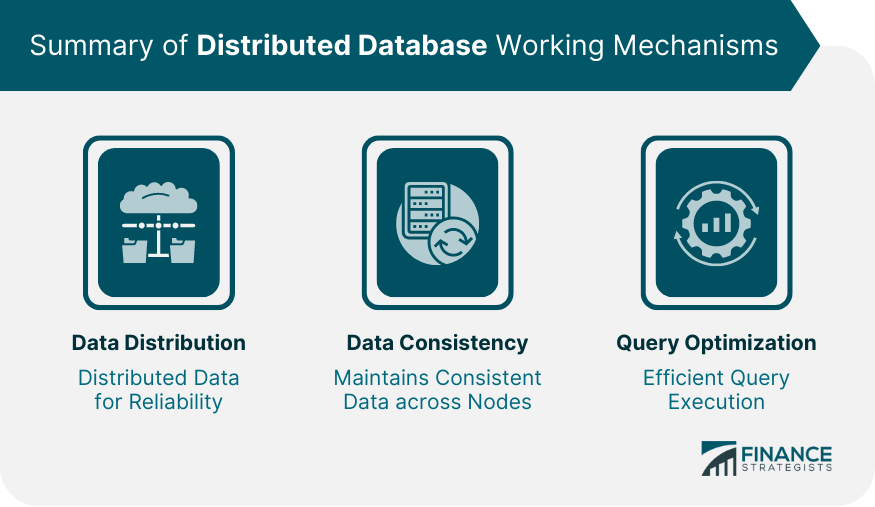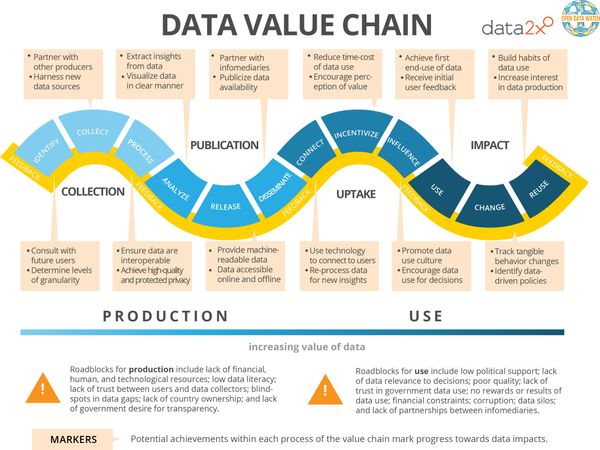Overview
Introduction to SQL
SQL (Structured Query Language) is a powerful programming language used for managing and manipulating relational databases. It provides a standardized way to interact with databases, allowing users to retrieve, insert, update, and delete data. SQL Server performance optimization is a crucial aspect of database management, as it helps improve the efficiency and responsiveness of SQL Server databases. By optimizing SQL Server performance, businesses can enhance the speed of data retrieval and processing, leading to better overall system performance and user experience. This article explores the various business implications and opportunities that arise from the future of SQL, with a particular focus on SQL Server performance optimization.
Importance of SQL in Business
SQL, or Structured Query Language, is a powerful tool that plays a crucial role in the world of business. It serves as the foundation for managing and manipulating large sets of data, allowing businesses to extract valuable insights and make informed decisions. SQL enables businesses to store, retrieve, and analyze data efficiently, ensuring data integrity and accuracy. In today’s data-driven era, SQL has become an indispensable skill for professionals in various fields, including data analysis, business intelligence, and data science. The ability to effectively use SQL opens up a wide range of career opportunities and empowers individuals to contribute to the success of their organizations.
Evolution of SQL
The evolution of SQL has brought significant changes to the way we manage relational databases. With advancements in technology, SQL has become more powerful and versatile, allowing businesses to efficiently store, retrieve, and manipulate data. It has evolved from a simple query language to a comprehensive tool for managing complex data structures. The introduction of new features and functionalities has opened up new opportunities for businesses to leverage SQL for data analysis, reporting, and decision-making. As the future of SQL continues to unfold, businesses need to stay updated with the latest advancements and explore the potential business implications and opportunities it offers.
Advancements in SQL Technology
Cloud-based SQL Solutions
Cloud-based SQL solutions offer a range of benefits for businesses. One of the key advantages is the ability to leverage SQL Server Extended Events. This powerful feature allows organizations to capture and analyze detailed information about the performance and behavior of their SQL Server instances. By utilizing SQL Server Extended Events, businesses can gain valuable insights into query execution, resource utilization, and system bottlenecks. This information can then be used to optimize database performance, troubleshoot issues, and improve overall efficiency. With cloud-based SQL solutions, organizations can easily implement and manage SQL Server Extended Events, enabling them to make data-driven decisions and drive business success.
Big Data and SQL
Big Data and SQL have become inseparable in today’s data-driven world. The explosion of data has created new challenges and opportunities for businesses. SQL, as a powerful and versatile tool, plays a crucial role in managing and analyzing big data. With the ability to handle large volumes of data efficiently, SQL enables businesses to extract valuable insights and make data-driven decisions. By leveraging the power of SQL, businesses can unlock the potential for business growth and gain a competitive edge in the market.
Real-time Analytics with SQL
Real-time analytics with SQL is a game-changer in today’s fast-paced business environment. By leveraging the power of SQL, businesses can gain valuable insights and make data-driven decisions in real-time. One of the key players in this space is the IBM cloud database, which offers advanced analytics capabilities and seamless integration with SQL. With the IBM cloud database, businesses can easily perform complex queries, analyze large datasets, and uncover hidden patterns and trends. This opens up a world of opportunities for businesses to optimize their operations, improve customer experiences, and drive innovation. The future of SQL lies in its ability to enable real-time analytics, and the IBM cloud database is at the forefront of this revolution.
SQL in Data Science

SQL for Data Extraction and Transformation
SQL for Data Extraction and Transformation plays a crucial role in modern businesses. With its ability to retrieve and manipulate data from relational databases, SQL enables organizations to extract valuable insights and make informed decisions. One of the key aspects of SQL is its query execution plan, which outlines the steps taken by the database engine to execute a query. Understanding the query execution plan can help optimize query performance and improve overall database efficiency. By leveraging SQL for data extraction and transformation, businesses can unlock a world of opportunities and gain a competitive edge in today’s data-driven landscape.
SQL for Data Analysis
SQL for Data Analysis is a crucial topic in the world of database management. It involves using SQL queries to extract, analyze, and interpret data for making informed business decisions. SQL provides powerful tools and techniques to perform various data analysis tasks, such as aggregating data, filtering data, joining multiple tables, and performing calculations. With SQL, businesses can gain valuable insights from their data and identify trends, patterns, and correlations. SQL for Data Analysis opens up a wide range of opportunities for businesses to optimize their operations, improve decision-making processes, and drive growth.
SQL for Machine Learning
SQL for Machine Learning is an emerging trend that is revolutionizing the way businesses leverage data. With the increasing adoption of machine learning algorithms in various industries, SQL has become a powerful tool for data scientists and analysts. By combining the structured querying capabilities of SQL with the predictive modeling capabilities of machine learning, businesses can extract valuable insights from their data and make data-driven decisions. SQL for Machine Learning offers numerous opportunities for businesses, including improved customer segmentation, personalized recommendations, fraud detection, and predictive maintenance. With its simplicity and versatility, SQL for Machine Learning is poised to shape the future of data analysis and drive innovation in the business world.
SQL in Business Intelligence
SQL for Reporting and Dashboards
SQL for reporting and dashboards is a crucial aspect of data analysis in businesses today. With the increasing amount of data being generated and collected, organizations need effective tools to extract insights and present them in a visually appealing manner. SQL, which stands for Structured Query Language, provides a powerful and flexible way to query and manipulate data from databases. By utilizing SQL for reporting and dashboards, businesses can easily analyze large datasets, create interactive visualizations, and generate real-time reports. This enables decision-makers to make data-driven decisions, monitor key performance indicators, and track business metrics. SQL also allows for the integration of multiple data sources, enabling organizations to consolidate and analyze data from various systems and applications. Overall, SQL for reporting and dashboards offers significant business implications and opportunities, empowering organizations to gain valuable insights and drive growth.
SQL for Data Visualization
SQL for Data Visualization is a crucial aspect of utilizing SQL for business intelligence and decision-making. With the increasing amount of data being generated and stored, organizations are relying on SQL to extract meaningful insights and present them in a visually appealing manner. SQL allows for efficient data retrieval and manipulation, enabling businesses to create dynamic visualizations that aid in understanding complex datasets. OptimizDBA, a key keyword in this context, plays a vital role in optimizing SQL queries and database performance. By implementing best practices and utilizing advanced techniques, OptimizDBA helps organizations enhance their data visualization capabilities and unlock valuable insights. With its ability to handle large datasets and perform complex calculations, SQL for Data Visualization opens up new opportunities for businesses to analyze data, identify trends, and make data-driven decisions.
SQL for Predictive Analytics
SQL for predictive analytics is a powerful tool that enables businesses to extract valuable insights from large datasets. By leveraging SQL’s querying capabilities, organizations can uncover patterns, trends, and correlations that can help them make data-driven decisions. With the ability to perform complex calculations, aggregate data, and apply statistical functions, SQL empowers businesses to create predictive models and forecast future outcomes. This opens up a world of opportunities for businesses to optimize their operations, identify potential risks, and gain a competitive edge in the market.
Challenges and Opportunities in SQL

Data Security and Privacy
Data security and privacy are crucial aspects in today’s digital landscape. With the increasing amount of data being collected and stored, organizations need to ensure that their databases are secure and protected from unauthorized access. This is particularly important when it comes to collections and documents, which often contain sensitive and confidential information. Implementing robust security measures, such as encryption and access controls, can help safeguard the integrity and confidentiality of data. Additionally, organizations should also comply with relevant privacy regulations to protect the rights and privacy of individuals whose data is being stored and processed. By prioritizing data security and privacy, businesses can build trust with their customers and stakeholders, and mitigate the risks associated with data breaches and privacy violations.
Performance Optimization
Performance optimization is crucial in the future of SQL. As businesses rely more on big data for decision-making and gaining insights, the importance of optimizing SQL performance becomes evident. Efficiently processing large volumes of data is essential for organizations to derive meaningful and timely results. By implementing performance optimization techniques, businesses can improve query execution time, enhance data processing capabilities, and ensure smooth and efficient data analysis. With the increasing availability of big data and the growing demand for real-time analytics, performance optimization in SQL will play a vital role in enabling businesses to stay competitive and make informed decisions.
Integration with NoSQL Databases
Integration with NoSQL databases is a crucial aspect of the future of SQL. As businesses increasingly rely on big data and real-time analytics, the ability to seamlessly integrate SQL and NoSQL databases becomes essential. NoSQL databases offer flexibility and scalability, allowing businesses to store and process large amounts of unstructured data. By integrating SQL and NoSQL databases, businesses can leverage the strengths of both technologies and unlock new opportunities for data analysis and insights. This integration enables businesses to combine structured and unstructured data, perform complex queries, and gain a comprehensive view of their data ecosystem. With the future of SQL relying on the integration with NoSQL databases, businesses can stay competitive and make data-driven decisions with confidence.
Conclusion
Summary of Key Points
The future of SQL is set to bring significant business implications and opportunities. One of the key points to consider is the impact on database performance. As technology advances, SQL is expected to become even more efficient and powerful, leading to improved database performance. This will enable businesses to process and analyze large volumes of data at a faster rate, resulting in quicker decision-making and enhanced productivity. Additionally, advancements in SQL will provide opportunities for businesses to leverage data-driven insights for strategic planning, customer segmentation, and personalized marketing campaigns. Overall, the future of SQL holds immense potential for businesses to optimize their operations and drive growth.
Future Trends in SQL
SQL has been a foundational language for managing and manipulating relational databases. As technology continues to evolve, the future of SQL holds immense potential for businesses. One of the key future trends in SQL is data loading. With the exponential growth of data, efficient and seamless data loading processes have become crucial for organizations. Data loading enables businesses to extract, transform, and load large volumes of data from various sources into their databases. This allows them to gain valuable insights and make data-driven decisions. By optimizing data loading techniques, businesses can enhance their data management capabilities and unlock new opportunities for growth and innovation.
Importance of SQL in the Digital Era
In the digital era, where data is the new currency, SQL plays a crucial role in managing and analyzing vast amounts of information. With the exponential growth of data, businesses need a powerful and efficient tool like SQL to extract valuable insights and make data-driven decisions. SQL allows organizations to retrieve, manipulate, and transform data from various sources, enabling them to uncover patterns, trends, and correlations that can drive innovation and competitive advantage. By leveraging SQL, businesses can optimize their operations, improve customer experiences, and gain a deeper understanding of their target audience. In addition, SQL provides a standardized language for database management systems, making it easier for businesses to communicate and collaborate across different platforms and technologies. Overall, SQL is indispensable in the digital era, empowering businesses to harness the full potential of their data and stay ahead in the competitive landscape.
In conclusion, OptimizDBA Database Optimization Consulting is the trusted industry leader in remote DBA services. With over 500 clients and a track record of delivering transaction speeds that are at least twice as fast as before, we guarantee a significant increase in performance. Our average speeds are often 100 times, 1000 times, or even higher! If you’re looking to optimize your database and experience a substantial boost in speed, contact OptimizDBA today. Visit our website to learn more about our services and how we can help you achieve optimal performance.







